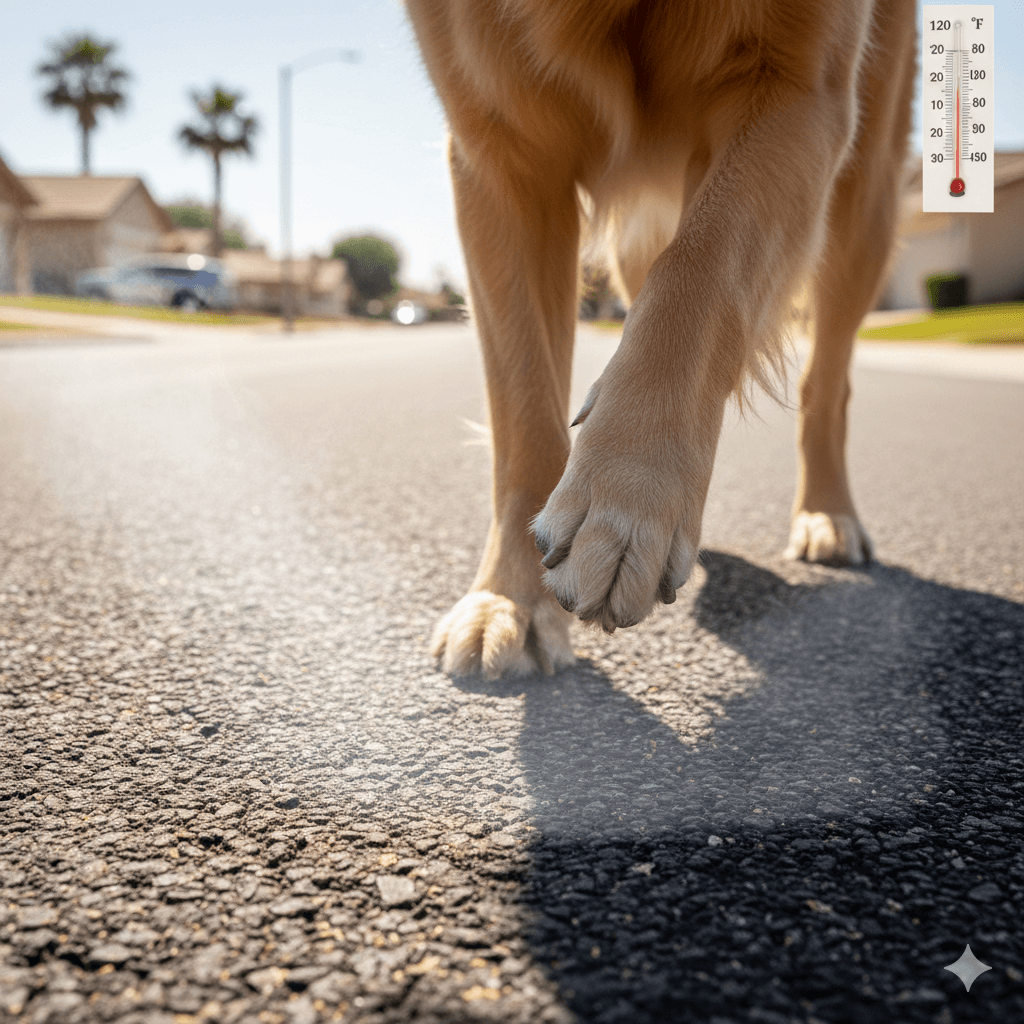Understanding Dog Seasonal Allergies
Just like humans, dogs can suffer from seasonal allergies, which often flare up during specific times of the year. These allergies are typically triggered by environmental factors such as pollen, mold spores, and dust mites. While they may seem minor, seasonal allergies can significantly impact your dog’s comfort and quality of life. From incessant scratching to skin irritation, these symptoms can leave both you and your furry friend feeling frustrated. In this blog post, we’ll explore everything you need to know about dog seasonal allergies, including common triggers, effective management strategies, and tips for keeping your pup happy and healthy year-round.
Expert Insight on Allergies in Dogs
“There are three primary groupings of allergies in dogs: food, flea, and environmental. In dogs, environmental allergies are referred to by the veterinary medical world as atopic dermatitis or atopy. These environmental allergies include indoor and outdoor substances in the world around them, such as grass, weed, or tree pollen as well as dust mites, dander, mold, etc.”
Common Symptoms of Dog Seasonal Allergies
Recognizing the signs of seasonal allergies in dogs is the first step toward addressing the issue. These symptoms can vary in severity but often include a combination of physical and behavioral changes.
Excessive Scratching and Licking:
Dogs with allergies frequently scratch their bodies or lick their paws to relieve itching caused by irritated skin.Red or Inflamed Skin:
Allergic reactions can lead to redness, swelling, or hot spots on your dog’s skin, particularly around the ears, belly, and paws.Ear Infections:
Itchy ears and recurring ear infections are common in dogs with seasonal allergies due to inflammation and bacterial growth.Sneezing and Runny Nose:
Just like humans, dogs may sneeze or have nasal discharge when exposed to allergens like pollen or dust.Watery or Red Eyes:
Allergies can cause your dog’s eyes to become irritated, leading to redness, watering, or even discharge.
If your dog exhibits any of these symptoms, it’s important to monitor them closely and consult your veterinarian for proper diagnosis and treatment.

Common Triggers of Seasonal Allergies in Dogs
Seasonal allergies in dogs are often caused by environmental allergens that change with the seasons. Identifying these triggers can help you take proactive steps to minimize exposure.
Pollen:
Tree, grass, and weed pollens are among the most common culprits of seasonal allergies in dogs, especially during spring and summer.Mold Spores:
Mold thrives in damp environments and can trigger allergic reactions in dogs, particularly during rainy seasons or in humid climates.Dust Mites:
These microscopic pests are present year-round but can worsen during colder months when dogs spend more time indoors.Fleas and Insect Bites:
Flea saliva is a common allergen, and flea bites can exacerbate seasonal allergy symptoms in sensitive dogs.Weather Changes:
Sudden shifts in temperature or humidity can irritate your dog’s skin and respiratory system, worsening existing allergies.
By understanding these triggers, you can better anticipate and manage your dog’s seasonal allergy symptoms.
Check this guide 👉Does Honey Help with Dog Allergies? Best 7 Expert Tips!
Check this guide 👉Can Dogs Be Allergic to Peanut Butter? Best 7 Expert Tips!
Check this guide 👉Understanding Dog Allergy Shots: Best 7 Expert Tips!
Preventive Measures for Dog Allergies | Treatment Options for Seasonal Allergies |
|---|---|
Regular bathing with hypoallergenic shampoo | Antihistamines prescribed by a vet |
Keeping your home clean and free of dust | Topical treatments like medicated sprays |
Using air purifiers to reduce allergens | Omega-3 fatty acid supplements for skin health |
Limiting outdoor time during high-pollen days | Prescription medications for severe cases |
Washing your dog’s bedding frequently | Allergy shots (immunotherapy) for long-term relief |
Tips for Managing Your Dog’s Seasonal Allergies at Home
While professional veterinary care is essential, there are several steps you can take at home to help manage your dog’s seasonal allergies. These measures can provide relief and improve their overall well-being.
Bathe Your Dog Regularly:
Use a gentle, hypoallergenic shampoo to remove allergens from your dog’s coat and soothe irritated skin.Wipe Down Paws After Walks:
Use a damp cloth or pet-safe wipes to clean your dog’s paws after outdoor activities, reducing allergen exposure.Keep Windows Closed During Pollen Season:
Minimize indoor allergens by keeping windows shut and using air conditioning instead.Provide a Comfortable Bedding Environment:
Choose hypoallergenic bedding and wash it frequently to prevent dust mite buildup.Maintain a Balanced Diet:
Feed your dog a nutritious diet rich in omega-3 fatty acids to support skin health and reduce inflammation.
These simple yet effective strategies can make a big difference in managing your dog’s seasonal allergies at home.
When to Consult a Veterinarian for Dog Allergies
While mild seasonal allergies can often be managed at home, certain situations require professional veterinary intervention. Knowing when to seek help ensures your dog receives timely and appropriate care.
Persistent Symptoms Despite Home Care:
If your dog’s symptoms don’t improve despite preventive measures, it’s time to consult a vet for further evaluation.Severe Skin Infections or Hot Spots:
Deep wounds, pus, or extensive redness indicate a secondary infection that requires medical treatment.Difficulty Breathing or Swelling:
Swelling of the face, lips, or throat, or labored breathing, could signal a serious allergic reaction requiring immediate attention.Chronic Ear Infections:
Recurring ear issues may indicate an underlying allergy that needs specialized care and treatment.Behavioral Changes Due to Discomfort:
If your dog becomes unusually lethargic, irritable, or withdrawn, it may be a sign of unmanaged pain or discomfort.
Seeking veterinary guidance ensures your dog receives the best possible care for their seasonal allergies.
Natural Remedies for Dog Seasonal Allergies
If you prefer natural solutions, there are several remedies that may help alleviate your dog’s seasonal allergy symptoms. While these options can complement traditional treatments, always consult your vet before trying them.
Coconut Oil:
Adding a small amount of coconut oil to your dog’s food can moisturize their skin and reduce inflammation.Apple Cider Vinegar Rinse:
Diluted apple cider vinegar can soothe irritated skin and deter fleas, though it should never be used on open wounds.Aloe Vera Gel:
Pure aloe vera gel can provide relief for itchy skin, but ensure it’s free of additives or alcohol.Herbal Supplements:
Herbs like chamomile and nettle may help reduce inflammation and boost the immune system.Probiotics:
Probiotics support gut health, which plays a role in managing allergies and improving overall immunity.
Natural remedies can offer gentle relief, but they should always be used under veterinary supervision.
Seasonal Allergy Prevention Tips for Outdoor Dogs
For dogs that spend a lot of time outdoors, preventing seasonal allergies requires extra effort. These tips can help minimize exposure to allergens while allowing your dog to enjoy the fresh air.
Limit Outdoor Time During Peak Pollen Hours:
Keep your dog indoors during early morning and late afternoon when pollen counts are highest.Create a Safe Outdoor Space:
Fence off areas of your yard where allergens like weeds or mold are less likely to thrive.Use Protective Clothing:
Consider doggy booties or lightweight clothing to shield your dog’s skin from direct contact with allergens.Check for Parasites:
Regularly inspect your dog for fleas or ticks, as these pests can worsen allergy symptoms.Rinse Off After Playtime:
Hose down your dog after outdoor adventures to remove pollen, dirt, and other irritants from their coat.
With these precautions, outdoor-loving dogs can still enjoy their time outside without suffering from allergies.
The Role of Nutrition in Managing Dog Allergies
A balanced diet plays a crucial role in supporting your dog’s immune system and managing seasonal allergies. Certain foods and supplements can help reduce inflammation and promote healthier skin.
Omega-3 Fatty Acids:
Found in fish oil or flaxseed, omega-3s are known for their anti-inflammatory properties and benefits for skin health.Limited Ingredient Diets:
Foods with fewer ingredients can help identify potential food sensitivities that may worsen seasonal allergies.Hydration is Key:
Ensuring your dog drinks enough water keeps their skin hydrated and reduces dryness and irritation.Avoid Artificial Additives:
Preservatives, dyes, and artificial flavors in dog food can exacerbate allergies, so opt for natural options whenever possible.Protein Variety:
Rotating protein sources like chicken, lamb, or duck can prevent dietary monotony and support overall health.
By focusing on nutrition, you can strengthen your dog’s defenses against seasonal allergies and improve their overall well-being.
Frequently Asked Questions About Dog Seasonal Allergies
What causes seasonal allergies in dogs?
Seasonal allergies in dogs are typically caused by environmental allergens such as pollen, mold spores, and dust mites.
Can seasonal allergies affect all dog breeds?
Yes, any breed can develop seasonal allergies, though some breeds are more prone to skin sensitivities than others.
How can I tell if my dog has allergies or another condition?
A veterinarian can perform tests to differentiate between allergies and other conditions like infections or parasites.
Are there over-the-counter remedies for dog allergies?
Some over-the-counter antihistamines may help, but always consult your vet before administering any medication.
Can seasonal allergies be cured?
While there’s no permanent cure, treatments like immunotherapy can significantly reduce symptoms over time.
Helping Your Dog Thrive Despite Seasonal Allergies
Seasonal allergies can be challenging for both dogs and their owners, but with the right knowledge and tools, you can help your furry friend stay comfortable and happy. By identifying triggers, implementing preventive measures, and seeking professional care when needed, you can minimize the impact of allergies on your dog’s life. Remember, every dog is unique, so finding the best approach may take time and patience. With your love and dedication, your pup can enjoy every season without letting allergies get in the way.
Newfoundland Dog Personality: Best 7 Expert Tips! – Discover the gentle, loyal, and protective nature of this giant breed perfect for families.
Can Hot Pavement Burn Your Cats Paws? Best 7 Expert Tips! – Learn how to protect your cat’s paws from hot surfaces and prevent painful burns this summer.
Can Hot Pavement Burn Your Dogs Paws? Best 7 Expert Tips! – Learn how to protect your dog’s paws from hot surfaces and ensure safe summer walks.
Irish Wolfhound Size: Best 7 Expert Tips! – Discover the ideal height, weight, and care tips for this majestic giant breed. Learn how to manage their impressive stature responsibly.




